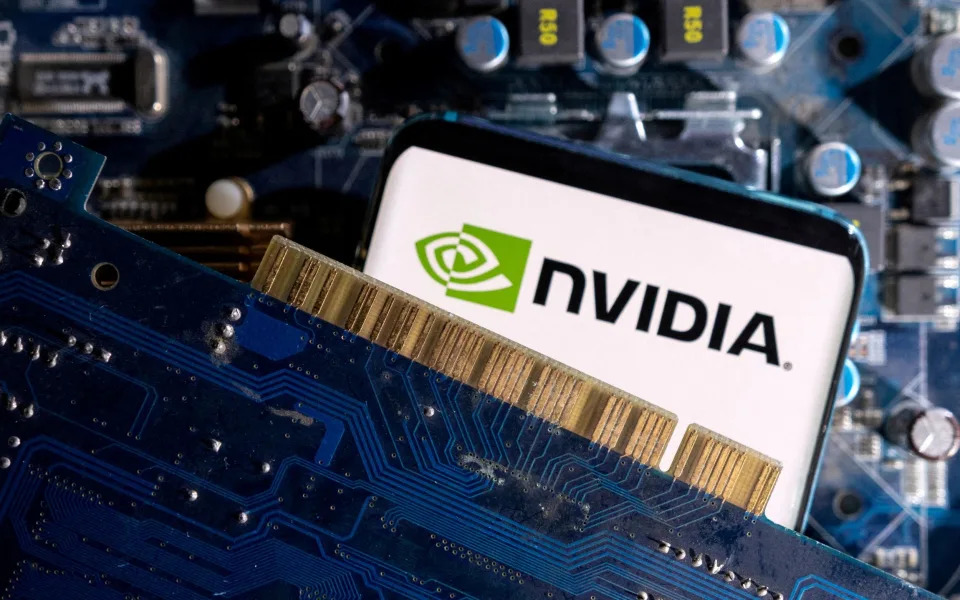Nvidia Dominates Markets in 2024
The past year has been a tale of one stock for the global markets: Nvidia. The chipmaker’s share price rose an astonishing 185% over those 12 months, with its market capitalization reaching a staggering $3.3 trillion (£2.6 trillion). This rapid growth has led some to warn that Nvidia is approaching bubble territory.
However, Stephen Yiu, manager of the £1.2 billion Blue Whale Growth fund, disagrees. He believes Nvidia has even further to go and plans to stay invested in the company for the next stage of its journey.
An Exclusive Interview with Stephen Yiu
We spoke to Mr. Yiu about his investment strategy and why he is reducing the fund’s position in Meta, owner of Facebook, as Silicon Valley’s artificial intelligence (AI) arms race heats up.
How Do You Pick Stocks?
Blue Whale Growth focuses on investing in high-quality global businesses that are exposed to "mega-trends". These trends are significant shifts in technology or markets that have the potential to drive long-term growth. By identifying these mega-trends, Mr. Yiu and his team aim to maximize returns for investors.
Concerns About Nvidia’s Valuation
We asked Mr. Yiu about concerns surrounding Nvidia’s valuation, given its market capitalization is now over $3.3 trillion. He explained that the fund invested in Nvidia in June 2021, when its market cap was $500 billion. Even after the stock price fell by more than 50% a year later, they continued to buy more shares at a lower valuation.
Nvidia has remained one of the top 10 holdings in the fund since then, with the team making over £100 million in profits from share sales. Mr. Yiu believes that Nvidia’s high-quality business model and lack of challengers make it an attractive investment opportunity.
Is 30 Times Earnings Excessive?
Nvidia’s forward 12-month price-to-earnings ratio is around 30 times earnings, which some might consider excessive. However, Mr. Yiu points out that other companies like Microsoft, Apple, Amazon, and Mastercard also trade at similar multiples. He argues that Nvidia’s growth rate, while slowing down, is still significant, and the market has already discounted this slowdown.
Why Don’t You Hold Tesla, Apple, Amazon, and Alphabet in Your Fund?
Out of the so-called "Magnificent Seven" stocks, which include Tesla, Apple, Amazon, and Alphabet, Blue Whale Growth only holds a small position in Meta and Microsoft. The fund manager explains that these companies have become more capital-intensive as they invest heavily in AI applications.
This shift has lowered their return on invested capital, making them less attractive to the fund. In contrast, Nvidia remains a capital-light business, with all production done through Taiwan Semiconductor Manufacturing Company (TSMC), which is also owned by the fund.
Reinvesting in Meta
We asked Mr. Yiu about why he reinvested in Meta after exiting it earlier this year. He explained that they were looking for an AI beneficiary to hold alongside Microsoft, Adobe, and Nvidia, and Meta came to mind due to its strong position in generative AI.
Meta’s data on consumers through WhatsApp, Instagram, and Facebook is unparalleled, making it a powerful combination for delivering personalized advertisements. However, Mr. Yiu is now reducing the fund’s position in Meta as he expects chief executive Mark Zuckerberg to spend heavily on generative AI.
Best and Worst Investments
The Blue Whale Growth fund has made significant returns on its investments, with Nvidia being one of its top performers. The team has made a 586% return on Nvidia, which has surpassed $1 trillion in market capitalization.
However, the fund’s worst investment was Sartorius, a biopharmaceuticals manufacturing equipment provider, which is down 48% since they invested in June 2021. Mr. Yiu explains that the company suffered from "destocking" following the pandemic, leading to underperformance.
Peter Hargreaves’ Commitment
We also spoke to Peter Hargreaves, who has a significant stake in the fund through his family’s investments. He remains committed to the strategy and hasn’t sold any of his holdings, with just over £200 million invested in the fund.
As the global markets continue to evolve, Blue Whale Growth is well-positioned to capitalize on emerging trends and opportunities. With its focus on high-quality businesses exposed to mega-trends, the fund aims to deliver long-term growth for investors.
Conclusion
The past year has been a remarkable one for Nvidia, with its market capitalization reaching new heights. While some may worry about the company’s valuation, Stephen Yiu and his team at Blue Whale Growth believe that there is still significant potential for growth.
As we look ahead to the future, it will be interesting to see how Nvidia continues to perform and whether other companies can match its level of success. One thing is certain: the global markets are full of opportunities and challenges, and investors would do well to keep a close eye on developments in the sector.

